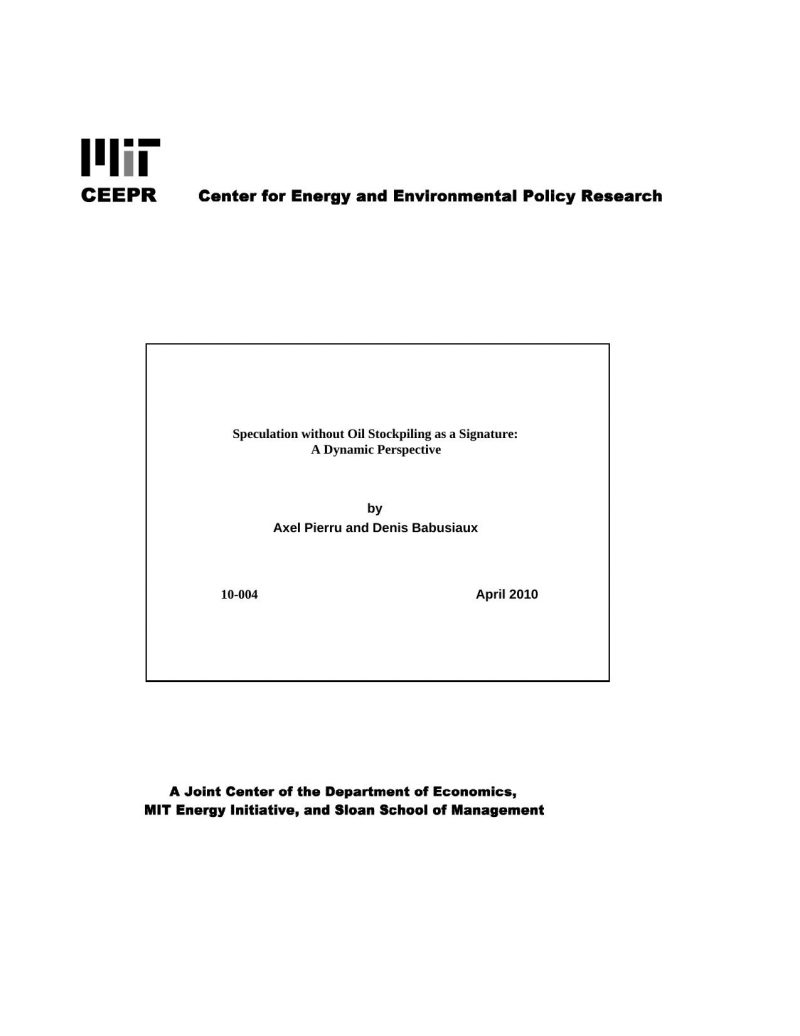Speculation without Oil Stockpiling as a Signature: A Dynamic Perspective
Axel Pierru and Denis Babusiaux
10-Apr
According to the standard analysis of commodity prices, stockpiling is a necessary signature of speculation. This paper develops an approach suggesting that speculation may temporarily push crude oil prices above the level justified by physical-market fundamentals, without necessarily resulting in a significant increase in oil inventories. Looking beyond debate on the value of oil-demand price-elasticity, showing a demand curve makes sense only if we consider a fixed time horizon (e.g. short-run). The scenario of oil demand slowly but continuously adjusting to a price fueled by speculation implies that price elasticity of demand is an increasing function of the time horizon considered. Short- and long-run elasticities can then be used to calibrate this function. A very low very-short-run price elasticity suggests that an exogenously-driven rise in crude oil price has a very slight impact on demand in the very short run and therefore, with supply constant, leads to a minimal increase in inventories. This interpretation differs from the traditional view, according to which storage of just a few barrels is enough to raise prices when elasticity is very low. We present several analytical and numerical illustrations (with oil-demand adjustment following Gompertz, logistic and exponential paths). The role that speculation may have played in recent movements in oil prices is also discussed.



